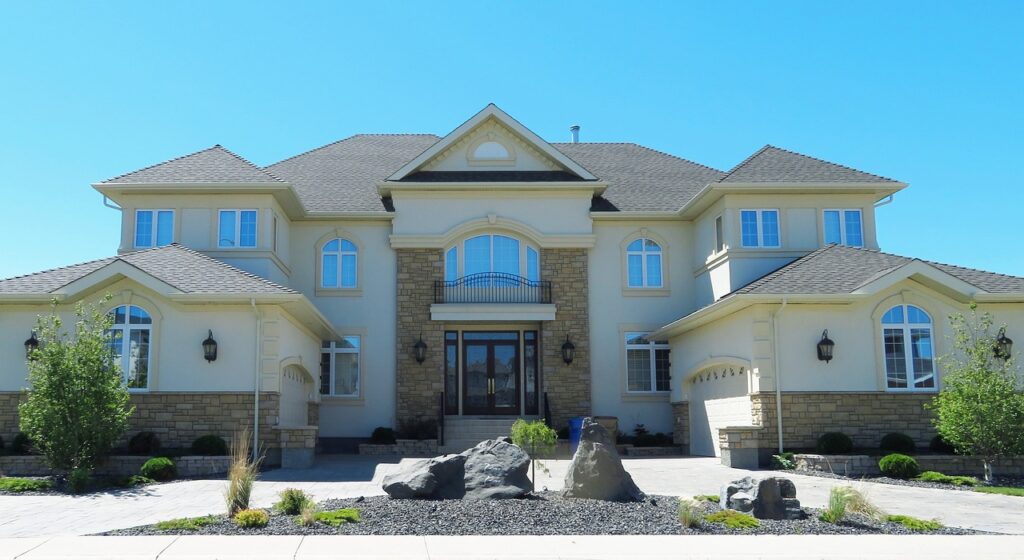
Conventional mortgage loans are the most versatile option in the realm of home financing. These loans differ from government-backed mortgages, such as FHA, VA, and USDA loans, as they aren’t insured or guaranteed by any federal agency. Instead, they are backed by private lenders and are subject to their terms and guidelines. Conventional mortgage loans offer several key advantages and considerations:
One trademark of conventional mortgage loans is their flexibility in down payment requirements. While some conventional lenders in Chicago may ask for a down payment as low as 3%, a larger down payment, often 20% or more, can lead to benefits such as lower interest rates and the avoidance of private mortgage insurance (PMI). PMI is typically required for borrowers who put down less than 20% to protect the lender in case of default.
Conventional mortgage loans can differ, but they generally require a solid credit history and a good credit score. While there is no specific minimum credit score universally mandated for conventional mortgage loans, borrowers with higher credit scores usually secure more favorable interest rates and terms. Lenders in Chicago may also scrutinize factors like debt-to-income ratio, employment stability, and income consistency.
Conventional mortgage loans adhere to conforming loan limits set by the Federal Housing Finance Agency (FHFA). In high-cost areas, these limits may be higher. Borrowers seeking to finance properties that exceed these limits may need to explore jumbo loans or consider a larger down payment to stay within the boundaries of conventional mortgage loans.
As mentioned earlier, borrowers who make a down payment of less than 20% often must pay for PMI. This insurance protects the lenders in Chicago if the borrower defaults on the loan. Once the loan-to-value ratio (LTV) reaches 80% or less, borrowers can typically request the removal of PMI, which can reduce their monthly payments.
Conventional mortgage loans come in various types, including fixed-rate and adjustable-rate mortgages (ARMs). Fixed-rate mortgages maintain the same interest rate throughout the loan term, offering stability and predictability. ARMs have interest rates that can fluctuate, which may result in lower initial payments but carry some risk of increasing costs over time.
In summary, conventional mortgage loans provide borrowers with a flexible and widely accessible means of financing their homes. With options for down payments, credit profiles, and loan types, they cater to a broad range of homeowners. However, to secure the most favorable terms and interest rates, borrowers should focus on building strong credit and carefully consider the down payment amount, as these factors significantly impact the overall cost of the loan. Consulting with knowledgeable mortgage lenders, such as Midamerica Lenders in Chicago can help borrowers navigate the intricacies of conventional mortgage loans and make informed decisions aligned with their financial goals. If you are looking for a “mortgage for 640 fico score Chicago” or “mortgage lender near me” call us or send the request.

FHA loans, backed by the Federal Housing Administration, are designed to make homeownership more accessible, especially for first-time buyers and individuals with limited financial resources. These loans have gained popularity due to their unique features and benefits:
FHA loans are known for their leniency when it comes to credit scores and credit history. Borrowers with less-than-perfect credit can often qualify for these loans, making them an attractive option for those working to improve their credit profiles.
FHA loans are insured by the federal government, which means that if a borrower defaults on the loan, the FHA reimburses the lenders in Chicago for their losses. This government backing provides added security for lenders in Chicago, encouraging them to offer more favorable terms to borrowers.
FHA loans require borrowers to pay for mortgage insurance, both an upfront premium and annual premiums. This insurance protects the lenders in Chicago in case of borrower default, given the lower down payment requirements. Borrowers should be aware that this additional cost can affect the overall affordability of the loan.
FHA loan limits vary by location and are adjusted annually. Borrowers should check the FHA website or consult with lenders in Chicago to determine the purchase loans real estate limit in their area.
In summary, FHA loans have played an important role in expanding homeownership opportunities in the United States, particularly for those who may not have met the criteria for conventional mortgage loans. With low down payment requirements, lenient credit qualifications, and government backing, they offer a pathway to homeownership for a wide range of individuals and families. However, borrowers should carefully consider the long-term costs associated with mortgage insurance and property requirements when evaluating FHA loans as an option for their home purchase. Consulting with a knowledgeable mortgage lender Chicago can provide further insights and guidance on how FHA loans align with specific financial goals.

VA loans are a unique and valuable home financing option exclusively available to eligible veterans, active-duty service members, some members of the National Guard and Reserves, and certain qualifying spouses. These loans, backed by the Department of Veterans Affairs (VA), offer several distinct advantages:
VA loans often offer competitive interest rates compared to conventional mortgage loans, which can result in lower monthly mortgage payments and potentially significant long-term savings.
Unlike many conventional mortgage loans, VA loans do not require borrowers to pay for private mortgage insurance (PMI), even with no down payment. This cost-saving feature can substantially reduce the overall cost of homeownership.
VA loans are known for their flexibility when it comes to credit scores and credit history. While lenders in Chicago may have their own credit standards, VA loans generally have more forgiving credit requirements, making them accessible to a broader range of borrowers.
VA offers a streamlined refinancing program known as the Interest Rate Reduction Refinance Loan (IRRRL), which allows eligible borrowers to cash out refinance their existing VA loan to obtain a lower interest rate with minimal paperwork and underwriting. Look further into the “Cash out refinance Chicago“.
The VA guarantees a portion of the loan, reducing the risk for lenders in Chicago and enabling them to offer more favorable terms to borrowers.
To apply for a VA loan, eligible individuals need to obtain a Certificate of Eligibility from the VA, which verifies their service and eligibility for the program.
In summary, VA loans are a powerful financial tool that honors the service of military personnel and their families by providing access to affordable homeownership. With no down payment requirements, competitive interest rates, and no need for PMI, VA loans offer a pathway to homeownership that can be especially beneficial to those who have served in the armed forces. Borrowers should take advantage of the many benefits these loans offer, while also considering property requirements and other eligibility criteria. Consulting with VA-approved lenders in Chicago or mortgage professionals can help veterans navigate the intricacies of VA loans and make informed decisions regarding their homeownership goals.

USDA loans, backed by the U.S. Department of Agriculture, are designed to encourage homeownership in rural and suburban areas. These loans offer unique benefits that make them an attractive option for eligible borrowers:
USDA loans are intended for homes located in rural and suburban areas, as determined by the USDA. Borrowers should use the USDA’s online eligibility map or consult with a USDA-approved lenders in Chicago to ensure the property they are interested in qualifies.
USDA loans require approval both from USDA-approved lenders in Chicago and the local USDA office. This dual approval process ensures that the borrower meets all eligibility criteria.
In summary, USDA loans are a valuable option for those looking to purchase homes in rural and suburban areas while enjoying the benefits of no down payment requirements and competitive interest rates. However, potential borrowers should be mindful of income restrictions and property eligibility requirements. Consulting with USDA-approved lenders in Chicago and mortgage professionals is crucial to determine whether a USDA loan aligns with their homeownership goals and location. These loans are a vital tool in supporting rural communities and helping moderate-income families achieve their dream of owning a home.

Jumbo loans are tailored for high-priced properties and can provide financing well beyond the limits imposed on conventional mortgage loans. This makes them suitable for luxury homes and properties in expensive real estate markets.
Given the larger loan amounts involved, lenders in Chicago typically require borrowers to have a strong credit history and a high credit score. Demonstrating financial stability is crucial when seeking approval for a jumbo loan.
Jumbo loans usually come with a higher down payment requirement compared to conventional mortgage loans. Lenders in Chicago may ask for a down payment ranging from 10% to 30% or more, depending on the specific loan terms and the borrower’s financial profile.
While interest rates for jumbo loans may be slightly higher than those for conventional mortgage loans, they have become increasingly competitive in recent years. Borrowers with strong credit and financial stability can often secure favorable rates.
Lenders in Chicago may require extensive financial documentation, including tax returns, bank statements, and proof of assets, to assess a borrower’s ability to repay the larger loan amount.
Lenders in Chicago may require borrowers to have substantial cash reserves, typically covering several months of mortgage payments, as a safeguard against financial hardships.
Lenders in Chicago pay close attention to a borrower’s debt-to-income (DTI) ratio, which measures their ability to manage existing debts in addition to the jumbo loan.
Jumbo loans are considered non-conforming loans because they exceed the limits set by government-sponsored entities like Fannie Mae and Freddie Mac. As a result, they may have different underwriting guidelines and qualification criteria.
In summary, jumbo loans serve a distinct niche in the mortgage market, providing financing solutions for high-value properties and borrowers with unique financial circumstances. While they offer flexibility in property choices and competitive interest rates, borrowers should be prepared for stringent credit and financial requirements, a larger down payment, and increased documentation scrutiny. Jumbo loans are an essential tool for those seeking to purchase luxury homes or homes in high-cost areas, but borrowers should carefully evaluate their financial readiness and consult with experienced lenders in Chicago to navigate the intricacies of these specialized loans effectively.
Copyright © 2024 All Rights Reserved | Powered by – Midamerica Lenders & Co.
